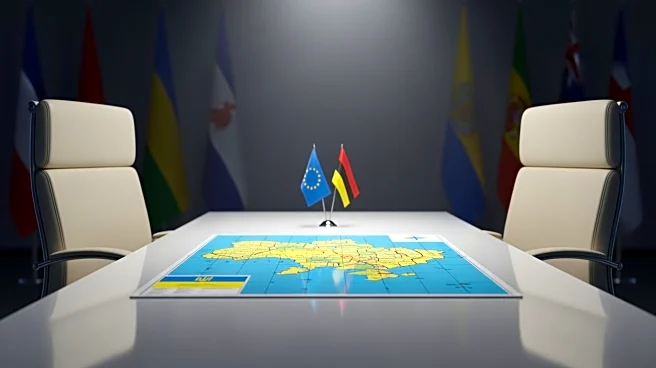What's Happening?
President Trump has announced that he will not meet with Russian President Vladimir Putin unless there is a clear path to a peace agreement between Russia and Ukraine. Speaking aboard Air Force One, Trump expressed
his disappointment with the lack of progress towards peace, despite having a historically good relationship with Putin. He emphasized that he would not waste his time on a meeting without tangible outcomes. This statement follows recent U.S. sanctions on Russia's major oil companies, Rosneft and Lukoil, aimed at pressuring the Kremlin into accepting a ceasefire. White House Press Secretary Karoline Leavitt noted that while a Trump-Putin summit is not entirely off the table, significant interest and action from Russia are necessary for any future negotiations.
Why It's Important?
The decision by President Trump to withhold a meeting with Putin underscores the U.S. administration's strategic approach to international diplomacy, particularly concerning the ongoing conflict in Ukraine. The imposition of sanctions on Russian oil companies highlights the economic leverage the U.S. is willing to use to influence geopolitical outcomes. This move could have significant implications for U.S.-Russia relations and the global energy market, potentially affecting oil prices and international trade. The situation also reflects the broader challenges in achieving peace in regions with deep-seated historical conflicts, impacting global stability and security.
What's Next?
The U.S. administration will likely continue to monitor Russia's actions closely, with further diplomatic or economic measures possible if progress towards peace remains stagnant. The international community, including European allies, may also play a role in mediating the conflict, potentially leading to multilateral discussions. The response from Russia, whether through diplomatic channels or changes in military strategy, will be crucial in determining the next steps in this geopolitical issue.
Beyond the Headlines
The ongoing conflict between Russia and Ukraine has broader implications for international law and the principle of sovereignty. The U.S.'s stance may influence other nations' foreign policies, particularly those in Eastern Europe, who are directly affected by regional instability. Additionally, the situation raises questions about the effectiveness of sanctions as a tool for conflict resolution and the ethical considerations of using economic pressure to achieve political ends.











